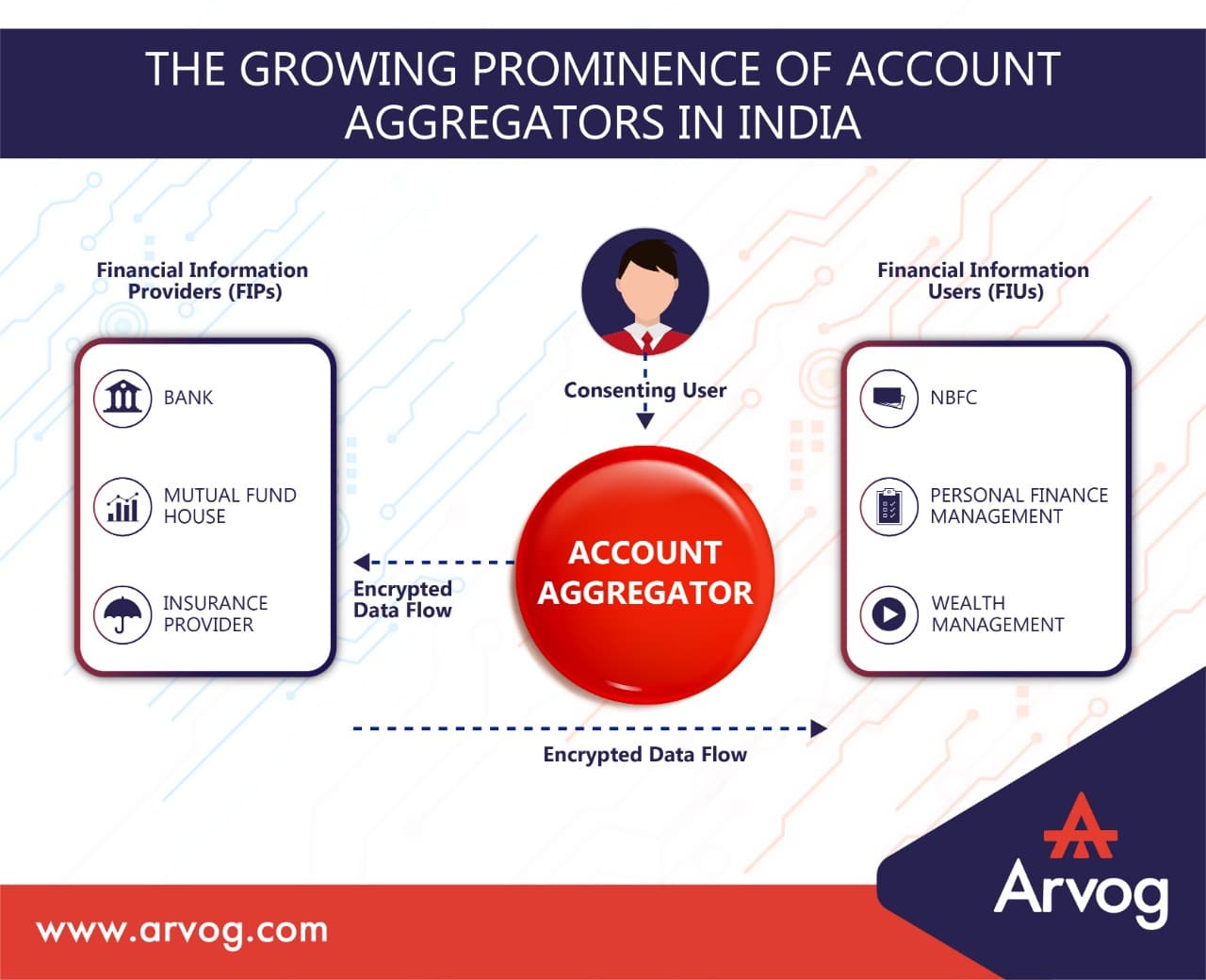
The Fintech industry has witnessed unprecedented growth in India. Boston Consulting Group and FICCI estimate that the Fintech industry will grow three times as valuable in the next five years, surpassing the $150-160 billion mark by 2025. Apart from market growth, accomplishing higher financial inclusion remains paramount for this industry. Reserve Bank of India (RBI) has expressed that developing and deploying cutting-edge technology would be needed to cover the gap between financial service enablers and end customers.
We need an organized method of data sharing among the regulated entities within the norms set out by the RBI and in line with the global practices that are fast moving towards an open banking system. An Account Aggregator is one such enabler of Open Finance in India.
Realizing the merits of these evolving trends and the advantages of data sharing at the behest of customers, RBI permitted non-banking financial companies (NBFCs) willing to undertake the business as an Account Aggregator (AA) to share customer-approved data as a distinct line of business. The RBI’s introduction of Account Aggregators (AA) is poised to be a game-changer in this regard.
In consultation with the RBI, Reserve Bank Information Technology Pvt Ltd, a wholly-owned subsidiary of the RBI, has arrived with a set of technical benchmarks. They recommended ensuring that the design of the Account Aggregator ecosystem is data-blind and based on electronic consent. It would generate trustworthy audit trails along with promoting interoperability and tech-driven innovation.
Key advantages of the Account Aggregator network
The Account Aggregator framework will help collate and consolidate all the customer’s financial data, thereby streamlining the path to credit access for individuals and enterprises. The consent of the customer is the most critical aspect of this framework.
The Account Aggregator network can channelise formal lending, encouraging increased consumption and investment. It could support financial institutions to assess the borrower’s creditworthiness more efficiently, make better lending decisions, and prevent bad loans and non-performing assets. This mechanism will expand the borrower base of these financial institutions.
Account Aggregator networks have a vast scope
RBI promotes Account Aggregators as a bridge to collect data from Financial Information Providers (FIP). They can share the data with Financial Information Users (FIU), that provide financial services to their customers for a fee.
The business of an Account Aggregator is collecting the bank statement of its customer as specified by the FIPs. It also consolidates, organizes, and presents such data to the FIUs as may be determined by FIPs with the customers’ express consent.
Confidentiality is core to the Account Aggregator network
The business model of Account Aggregator has been to make sharing and aggregating financial data possible in a protected, transparent, and efficient manner by setting up an intermediary, which will also be responsible for the customer’s consent management. These intermediaries are duly registered, licensed, and well-regulated by RBI.
RBI norms require the institutionalization of robust data security and customer grievance redressal mechanism. Data can never be stored by the Aggregator or utilized for any other purpose and shall be shared only with the regulated financial entities.
Account Aggregator network has a long way forward
The Account Aggregator framework can revolutionize financial services by simplifying data sharing among regulated entities to prevent misuse. As the importance of Account Aggregators gains traction, financial institutions will have to align their technology-based platforms with each other to provide seamless movement of financial data.
ICICI Bank, State Bank of India, IDFC First Bank, Kotak Mahindra Bank, HDFC Bank, Axis Bank, IndusInd Bank, and Federal Bank are among the financial institutions in India that are a part of the Account Aggregator network.
It is necessary to receive a license from the Reserve Bank of India to participate in the Account Aggregator framework in India. CAMSFinServ, Cookiejar Technologies Pvt Ltd, Finvu, FinSec AA Solutions Pvt Ltd, OneMoney, and NSEL Asset Data Ltd are a few additional account aggregators who have been given the RBI’s approval.
Account Aggregators have been a buzzword in banking and tech circles to drive data insights for the mutual benefit of all stakeholders. It is well poised to revolutionize the financial services sector as UPI did for online payments.




